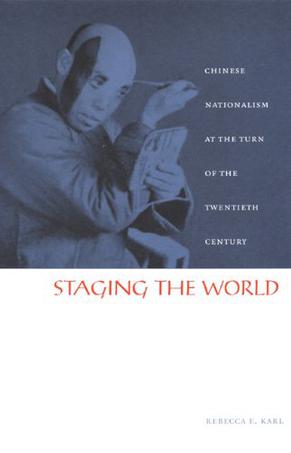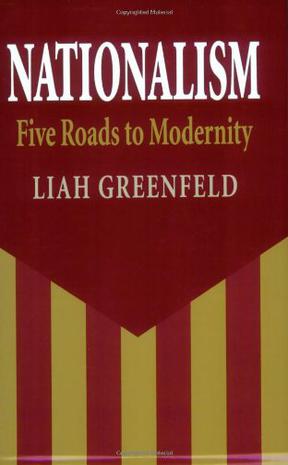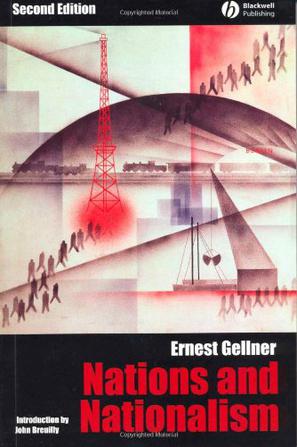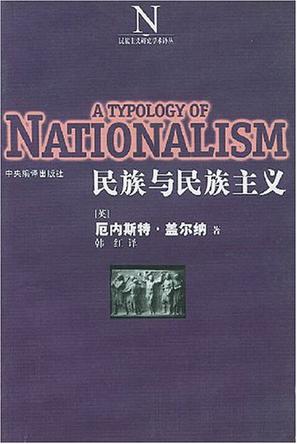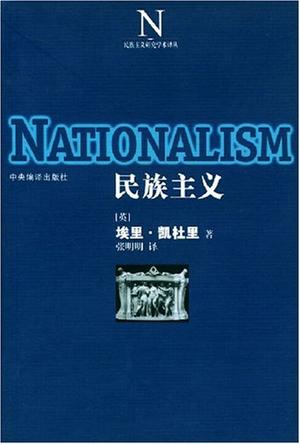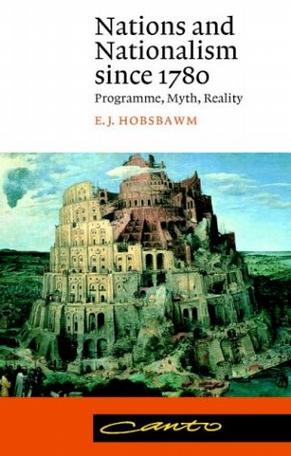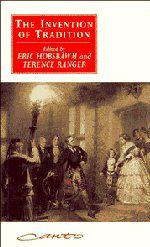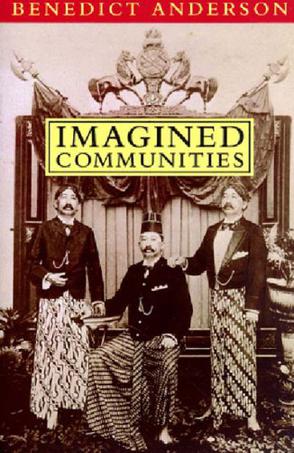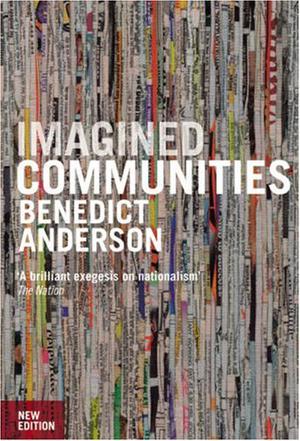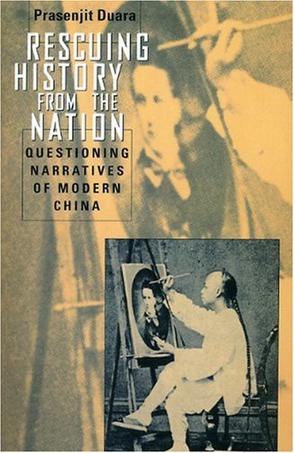欢迎来到相识电子书!
标签:nationalism
-
China's New Nationalism
Three American missiles hit the Chinese embassy in Belgrade, and what Americans view as an appalling and tragic mistake, many Chinese see as a "barbaric" and intentional "criminal act," the latest in a long series of Western aggressions against China. In this book, Peter Hays Gries explores the roles of perception and sentiment in the growth of popular nationalism in China. At a time when the direction of China's foreign and domestic policies have profound ramifications worldwide, Gries offers a rare, in-depth look at the nature of China's new nationalism, particularly as it involves Sino-American and Sino-Japanese relations--two bilateral relations that carry extraordinary implications for peace and stability in the twenty-first century. Through recent Chinese books and magazines, movies, television shows, posters, and cartoons, Gries traces the emergence of this new nationalism. Anti-Western sentiment, once created and encouraged by China's ruling PRC, has been taken up independently by a new generation of Chinese. Deeply rooted in narratives about past "humiliations" at the hands of the West and impassioned notions of Chinese identity, popular nationalism is now undermining the Communist Party's monopoly on political discourse, threatening the regime's stability. As readable as it is closely researched and reasoned, this timely book analyzes the impact that popular nationalism will have on twenty-first century China and the world. -
Nationalism
Nationalism is a movement and a state of mind that brings together national identity, consciousness, and collectivities. It accomplished the great transformation from the old order to modernity; it placed imagination above production, distribution, and exchange; and it altered the nature of power over people and territories that shapes and directs the social and political world. A five-country study that spans five hundred years, this historically oriented work in sociology bids well to replace all previous works on the subject. The theme, simple yet complex, suggests that England was the front-runner, with its earliest sense of self-conscious nationalism and its pragmatic ways; it utilized existing institutions while transforming itself. The Americans followed, with no formed institutions to impede them. France, Germany, and Russia took the same, now marked, path, modifying nationalism in the process. Nationalism is based on empirical data in four languages--legal documents; period dictionaries; memoirs; correspondence; literary works; theological, political, and philosophical writings; biographies; statistics; and histories. Nowhere else is the complex interaction of structural, cultural, and psychological factors so thoroughly explained. Nowhere else are concepts like identity, anomie, and elites brought so refreshingly to life. -
Nations and Nationalism
Nationalism is one of the most powerful forces in the modern world, yet it is surprisingly little studied and only imperfectly understood, either by its adherents or its opponents. Its irruption into the modern world is often explained as a resurgence of primitive, atavistic instincts, or as a delusion fostered by a few theoreticians, politicians or propagandists. The present volume interprets nationalism in terms of its social roots, which it locates in industrial social organization. A society that aims for affluence and economic growth, Professor Gellner argues, depends on innovation, occupational mobility, mass media, universal literacy, and education in a shared, standard idiom. Taken together these transform the relationship between culture and the state. The functioning of the society depends on an all-embracing educational system, tied to one culture and protected by a state identified with that culture. The principle one state, one culture makes itself felt, and political units which do not conform to it feel the strain in the form of nationalist activity. --This text refers to an out of print or unavailable edition of this title. Table of Contents About the Authors vii About this Edition viii Editor's Preface to the First Edition R. I. Moore, Founding Editor ix Acknowledgements for the First Edition xi Introduction John Breuilly xiii 1 Definitions 1 State and Nation 3 The Nation 5 2 Culture in Agrarian Society 8 Power and Culture in the Agro-literate Polity 9 Culture 11 The State in Agrarian Society 13 The Varieties of Agrarian Rulers 14 3 Industrial Society 19 The Society of Perpetual Growth 23 Social Genetics 29 The Age of Universal High Culture 34 4 The Transition to an Age of Nationalism 38 A Note on the Weakness of Nationalism 42 Wild and Garden Cultures 48 5 What is a Nation? 52 The Course of True Nationalism Never did Run Smooth 57 6 Social Entropy and Equality in Industrial Society 62 Obstacles to Entropy 63 Fissures and Barriers 72 A Diversity of Focus 73 7 A Typology of Nationalisms 85 The Varieties of Nationalist Experience 94 Diaspora Nationalism 98 8 The Future of Nationalism 106 Industrial Culture - One or Many? 110 9 Nationalism and Ideology 118 Who is for Nuremberg? 125 One Nation, One State 128 10 Conclusion 131 What is not being Said 131 Summary 133 -
民族与民族主义
图赞巴赫:你说,在未来的年代里,地球上的生活将是不可思议的,美妙的。的确如此,然而,即便那种生活尚很遥远,要想成为它的一部分,就必须做好准备,必须工作……是的,必须工作,也许你会想——这个德国人过于激动了,但是,我发誓,我是俄国人。我连德语都不会讲,我的父亲是东正教徒…… 我们的民族犹如我们与女人的关系:它与我们的道德本质是连在一起的,无法体面地改变,它纯属偶然,不值得改变。 -
民族主义
民族主义认为人类自然地分不同的民族,这些不同民族是而且必须是政治组织的严格单位。 社会主义在苏维埃帝国及其卫星的崩溃和失败并不意味着意识形态形式的政治消失——远远不是。正像我们所能看到的那样,它已经以一种对社会主义的逆反方式,复活了民族主义。 事实上,民族主义意识形态,显然不是繁荣的保证书,或者是可信任的好政府的保证书,民族解放阵线在阿尔及利亚的30年统治,伊拉克、叙利亚和埃及的民族主义政权的记录,或者是铁托及其继承者统治下的南斯拉夫专制政权的记录,是几个可以用来加以说明的例证。 -
Nations and Nationalism since 1780
Eric Hobsbawm's brilliant enquiry into the question of nationalism won further acclaim for his 'colossal stature ... his incontrovertible excellence as an historian, and his authoritative and highly readable prose'. Recent events in Eastern Europe and the former Soviet republics have since reinforced the central importance of nationalism in the history of political evolution and upheaval. This second edition has been updated in the light of those events, with a final chapter addressing the impact of the dramatic changes that have taken place. It also includes additional maps to illustrate nationalities, languages and political divisions across Europe in the nineteenth and twentieth centuries. -
想像的共同體
民族主義研究的必讀經典 《想像的共同體》自1983年問世以來,不但使學界對民族與民族主義課題的思考角度產生哥白尼式的徹底翻轉,其深刻影響也廣及人文與社會學科的各個領域。除了被譯成三十一種語言出版之外,甚至成為一種近乎教科書的作品,遠遠超乎作者的預料。 安德森從文化內涵的改變與印刷資本主義的興起來探討民族主義的源起,並辨析民族主義在美洲誕生,被歐洲的群眾運動挪用,被帝國政權吸納,再到亞非兩洲以民族主義為號召的反帝國主義抗爭的數百年過程。 此次中文增訂版收錄了安德森於2006年新添的一章,概略檢視了此書所造成的影響,並探討此書在世界各地的出版與反應情況;另外更收錄了2003年作者兩篇關於臺灣處境的研討會講稿,以及譯者訪談這位學術大師的深情記敘。 -
The Invention of Tradition
Many of the traditions which we think of as very ancient in their origins were not in fact sanctioned by long usage over the centuries, but were invented comparatively recently. This book explores examples of this process of invention - the creation of Welsh and Scottish ‘national culture’; the elaboration of British royal rituals in the nineteenth and twentieth centuries; the origins of imperial rituals in British India and Africa; and the attempts by radical movements to develop counter-traditions of their own. It addresses the complex interaction of past and present, bringing together historians and anthropologists in a fascinating study of ritual and symbolism which poses new questions for the understanding of our history. -
Imagined Communities
What makes people love and die for nations, as well as hate and kill in their name? While many studies have been written on nationalist political movements, the sense of nationality - the personal and cultural feeling of belonging to the nation - has not received proportionate attention. In this widely acclaimed work, Benedict Anderson examines the creation and global spread of the 'imagined communities' of nationality. Anderson explores the processes that created these communities: the territorialisation of religious faiths, the decline of antique kingship, the interaction between capitalism and print, the development of vernacular languages-of-state, and changing conceptions of time. He shows how an originary nationalism born in the Americas was modularly adopted by popular movements in Europe, by the imperialist powers, and by the anti-imperialist resistances in Asia and Africa. This revised edition includes two new chapters, one of which discusses the complex role of the colonialist state's mindset in the development of Third World nationalism, while the other analyses the processes by which all over the world, nations came to imagine themselves as old. -
Imagined Communities
The definitive, bestselling book on the origins and development of nationalism. Imagined Communities, Benedict Anderson's brilliant book on nationalism, forged a new field of study when it first appeared in 1983. Since then it has sold over a quarter of a million copies and is widely considered the most important book on the subject. In this greatly anticipated revised edition, Anderson updates and elaborates on the core question: what makes people live, die and kill in the name of nations? He shows how an originary nationalism born in the Americas was adopted by popular movements in Europe, by imperialist powers, and by the anti-imperialist resistances in Asia and Africa, and explores the way communities were created by the growth of the nation-state, the interaction between capitalism and printing, and the birth of vernacular languages-of-state. Anderson revisits these fundamental ideas, showing how their relevance has been tested by the events of the past two decades. -
Rescuing History from the Nation
Prasenjit Duara offers the first systematic account of the relationship between the nation-state, nationalism, and the concept of linear history. Focusing primarily on China and including discussion of India, Duara argues that many historians of postcolonial nation-states have adopted a linear, evolutionary history of the Enlightenment/colonial model. As a result, they have written repressive, exclusionary, and incomplete accounts. The backlash against such histories has resulted in a tendency to view the past as largely constructed, imagined, or invented. In this book, Duara offers a way out of the impasse between constructionism and the evolving nation; he redefines history as a series of multiple, often conflicting narratives produced simultaneously at national, local, and transnational levels. In a series of closely linked case studies, he considers such examples as the very different histories produced by Chinese nationalist reformers and partisans of popular religions, the conflicting narratives of statist nationalists and of advocates of federalism in early twentieth-century China. He demonstrates the necessity of incorporating contestation, appropriation, repression, and the return of the repressed subject into any account of the past that will be meaningful to the present. Duara demonstrates how to write histories that resist being pressed into the service of the national subject in its progress—or stalled progress—toward modernity.
热门标签
下载排行榜
- 1 梦的解析:最佳译本
- 2 李鸿章全传
- 3 淡定的智慧
- 4 心理操控术
- 5 哈佛口才课
- 6 俗世奇人
- 7 日瓦戈医生
- 8 笑死你的逻辑学
- 9 历史老师没教过的历史
- 10 1分钟和陌生人成为朋友

